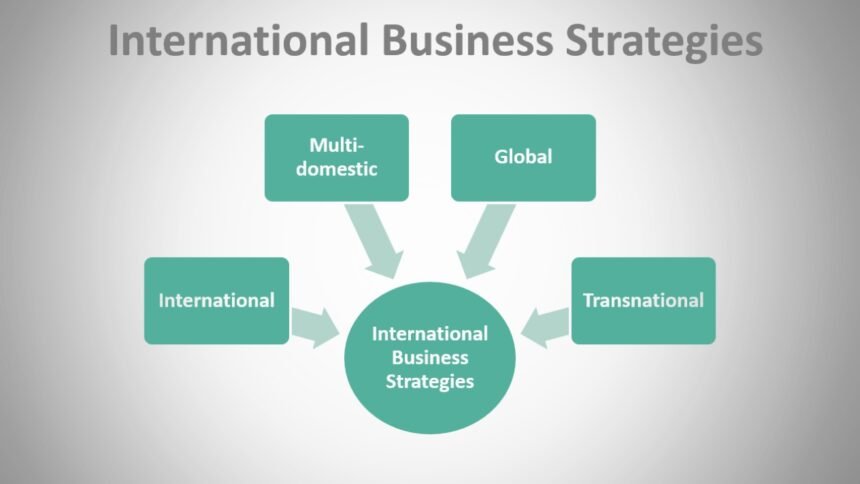In today’s interconnected world, the advantages of international business offer American companies unparalleled opportunities to thrive beyond domestic borders. As globalization reshapes markets, businesses that expand internationally gain access to new revenue streams, diverse talent pools, and innovative ideas that fuel growth. For American entrepreneurs and corporations, venturing into global markets is no longer just an option—it’s a strategic necessity to stay competitive. This blog explores how international expansion benefits U.S. businesses, from economic gains to cultural enrichment, providing a roadmap for companies eager to embrace the global stage.
Advantages of International Business for Growth
The global economy is a dynamic landscape where American companies can find fertile ground for growth. By engaging in international business, companies tap into markets that offer fresh demand for their products and services. For instance, emerging economies in Asia and Africa present vast consumer bases eager for American goods, from technology to consumer products. This expansion allows businesses to diversify their revenue sources, reducing reliance on the U.S. market, which can be vulnerable to economic fluctuations. Moreover, international markets often provide opportunities to sell products at different price points, catering to varied purchasing powers across regions.
Building Economic Resilience
Beyond revenue, international business fosters resilience. Companies that operate in multiple countries can better weather domestic downturns, such as recessions or shifts in consumer behavior. By spreading their operations globally, businesses create a buffer against localized economic challenges. This strategic diversification is particularly crucial for American firms facing intense domestic competition, where standing out requires innovative approaches and broader market reach.
Economic Benefits of Global Expansion
Scaling for Profitability
One of the most compelling benefits of global expansion is the potential for significant economic gains. Expanding into foreign markets allows American companies to scale operations, increase sales, and boost profitability. For example, large corporations like Apple and Coca-Cola generate substantial portions of their revenue from international markets, leveraging global demand to sustain growth. Smaller businesses, too, can benefit by accessing niche markets abroad where their products may face less competition.
Achieving Cost Efficiencies
Additionally, international business enables cost efficiencies. Many American companies establish manufacturing or service operations in countries with lower labor costs, such as Mexico or India, without compromising quality. According to a study published on Google Scholar by Buckley and Casson (2016), multinational enterprises benefit from cost advantages through economies of scale and access to affordable resources abroad (“The Future of the Multinational Enterprise”). These savings can be reinvested into innovation, marketing, or further expansion, creating a virtuous cycle of growth.
Leveraging Trade Agreements
Furthermore, international trade agreements, such as the USMCA, facilitate smoother cross-border operations by reducing tariffs and regulatory barriers. For American businesses, these agreements lower the cost of exporting goods and services, making global markets more accessible. As a result, companies can maximize profits while offering competitive pricing to international consumers.
Access to Global Talent and Innovation
Tapping Diverse Talent Pools
Another key advantage of international business lies in accessing diverse talent pools and innovative ideas. By establishing operations or partnerships abroad, American companies can recruit skilled professionals from different cultural and educational backgrounds. This diversity fosters creativity, as employees bring unique perspectives that drive product development and problem-solving. For instance, tech giants like Google and Microsoft rely on global teams to innovate at the forefront of artificial intelligence and cloud computing.
Driving Innovation Through Global Insights
International expansion also exposes businesses to new technologies and business practices. In markets like Japan or Germany, where innovation in manufacturing and engineering thrives, American firms can adopt cutting-edge techniques to enhance their operations. As Dr. Pankaj Ghemawat, a global strategy expert, notes, “Firms that engage in cross-border activities are more likely to innovate by leveraging the knowledge and capabilities of diverse markets” (Ghemawat, 2017, “The New Global Roadmap”). This access to global innovation ensures American companies remain competitive in fast-evolving industries.
Fostering Collaborative Partnerships
Moreover, international business encourages collaboration with foreign partners, such as suppliers or research institutions. These partnerships often lead to breakthroughs that would be difficult to achieve within the confines of a single market. For American businesses, tapping into global expertise is a powerful way to stay ahead of the curve.
Cultural and Brand Enrichment
Adapting to Global Consumers
Engaging in international business also enriches a company’s cultural understanding and brand identity. By operating in diverse markets, American firms gain insights into consumer preferences, cultural nuances, and local traditions. This knowledge allows businesses to tailor their products and marketing strategies to resonate with global audiences, building stronger connections with customers worldwide. For example, fast-food chains like McDonald’s adapt their menus to local tastes, offering items like the Teriyaki Burger in Japan or the McAloo Tikki in India.
Enhancing Global Brand Reputation
This cultural adaptability enhances brand reputation, positioning American companies as global citizens rather than purely domestic entities. A strong international presence signals reliability and prestige, attracting customers and investors alike. Additionally, exposure to diverse cultures fosters corporate social responsibility, as businesses learn to align with global sustainability and ethical standards, further strengthening their brand image.
Navigating Challenges for Greater Rewards
Overcoming Global Barriers
While the advantages of international business are substantial, expansion comes with challenges that American companies must navigate. Currency fluctuations, regulatory differences, and geopolitical risks can complicate operations. However, these obstacles often lead to long-term rewards when addressed strategically. For instance, companies that invest in understanding local laws and customs can build stronger relationships with foreign stakeholders, fostering trust and loyalty.
Leveraging Technology for Efficiency
Technology also plays a pivotal role in overcoming barriers. Digital platforms enable seamless communication, supply chain management, and market research, allowing American businesses to operate efficiently across borders. By leveraging data analytics, companies can anticipate market trends and consumer needs, ensuring they remain agile in competitive global environments.
Strengthening Risk Management
Furthermore, international business encourages American firms to develop robust risk management strategies. By diversifying their operations, companies learn to mitigate risks through contingency planning and adaptive strategies. This resilience not only strengthens their global presence but also enhances their domestic operations, creating a more robust business model overall.
Building a Competitive Edge
Standing Out in Global Markets
In a crowded marketplace, international business provides American companies with a competitive edge. By entering global markets, businesses differentiate themselves from competitors who remain focused on domestic opportunities. This differentiation is particularly valuable in industries like technology, retail, and manufacturing, where innovation and market share are critical to success. A global footprint signals ambition and capability, attracting partnerships and investment opportunities.
Expanding Product Offerings
Moreover, international expansion fosters economies of scope, allowing companies to offer a broader range of products and services. For example, a U.S.-based software company might develop region-specific applications based on insights gained from international markets, expanding its portfolio and customer base. This adaptability ensures American businesses remain relevant in an ever-changing global economy.
Conclusion
The advantages of international business for American companies are vast and transformative, offering pathways to economic growth, innovation, and cultural enrichment. By embracing global markets, U.S. businesses can diversify revenue, access world-class talent, and build brands that resonate worldwide. While challenges exist, the rewards of international expansion far outweigh the risks, providing American companies with the tools to thrive in a globalized world. As markets continue to evolve, those who seize the opportunities of international business will lead the way, shaping the future of commerce with vision and ambition.






